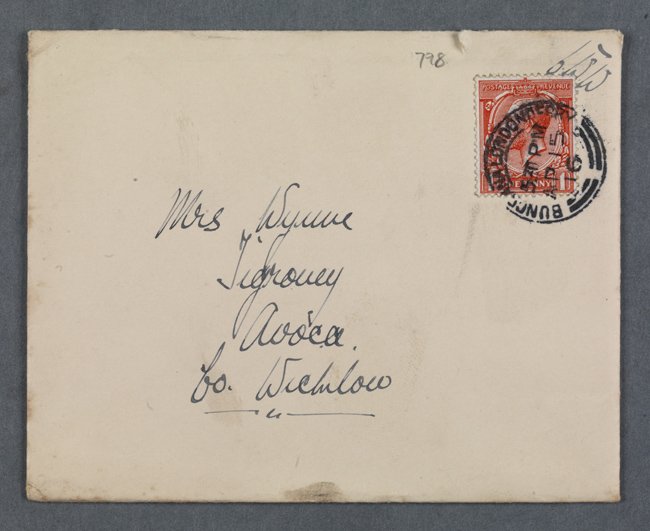O'Connell Street area during the 1916 Rising. Image via The Board of Trinity College Dublin
In what is being described as a ‘digital collection’ of letters, a new crowdsourced history project is launching at Trinity College Dublin (TCD) this week. The goal is to get the public to upload online any letters and photographs they may have stashed away from around the time of Ireland’s Easter Rising in 1916. The online history project will be live just in time for the centenary of the event.
The new digital archive is being led by researchers at TCD as part of a public history project to recreate ordinary life in Ireland around the time of the Easter Rising. Students on Trinity College’s MPhil in digital humanities and culture project will be working on the initiative, as well.
According to TCD, the online resource, The Letters of 1916: Creating History, will aim to be a large-scale digital collection of letters written for six months before and after the Easter Rising.
The university is describing the project as Ireland’s ‘first crowd-sourced humanities project’.
To coincide with the centenary of the Easter Rising, the online archive of letters created by the public for the public will launch in 2016.
Members of the public who wish to contribute to the project may upload pictures of letters and related photographs to the database on the website, TCD confirmed today.

Letter from Charles Wynne to his mother, Alice Wynne. Image via the board of Trinity College Dublin
Any letters written between 1 November 1915 and 31 October 1916, no matter what the theme – be it romance, local politics, literature, gossip, the Rising and the Great War – will be eligible for uploading.
People can also get involved in uncovering hidden stories by transcribing some of the 400 letters already contributed to the archive by public institutions, including the National Library of Ireland, the National Archives of Ireland, TCD and University College Dublin, as well as the Medical Missionaries of Mary.
“Allowing letters from personal collections to be read alongside official letters and letters contributed by institutions will add new perspectives to the events of the period and allow us to understand what it was like to live an ordinary life through what were extraordinary times,” explained Dr Susan Schreibman, associate professor in digital humanities in the School of English at TCD, and the project’s principal investigator.
Through these letters, she said the digital archive will aspire to bring to life the last words, the unspoken words and the forgotten words of ordinary people during this “formative period” in Irish history.
“All too often our emphasis is on the grand narrative focusing on key political figures. But as we approach the centenary of the Easter Rising we want to try to get a sense of how ordinary people coped with one of the most disruptive periods in contemporary Irish history – from loved ones serving in the British Army and Dublin itself becoming a theatre of war, to the business of State carried out by Government.”
Delving into the personal hardships of people around the time of the 1916 Rising
Schreibman said that it is these “personal stories of hardship and love, great loss and great strength” that tend to be lost in traditional historical accounts.
“This project is reclaiming these lives for our generation and generations to come, allowing their stories to be heard alongside those that we are more familiar with. Digital humanities projects like this one open up the research process, giving everybody the opportunity to be a researcher.”
Public to experience research in action at Discover Research Night
The overall project will officially kick-off this coming Friday (27 September) at Discover Research Night. Researchers at TCD and the Royal Irish Academy are organising this event, which will take place in the Trinity Long Room Hub, Fellows’ Square, Trinity College, starting at 6pm.
As well as this, people are being invited to bring family letters to the Trinity Long Room Hub to upload to the archive and to learn about how digital collections get created.
Schreibman said anyone who comes along on Friday will also get hands-on experience of scanning, transcribing and creating websites.
Researchers and archivists will be on hand to answer questions about how best to preserve old letters.
Previous work by the students involved in the MPhil group includes the Mary Martin Diary project – a digitised diary to offer insight into the lives of families of Irish soldiers who fought during World War I.